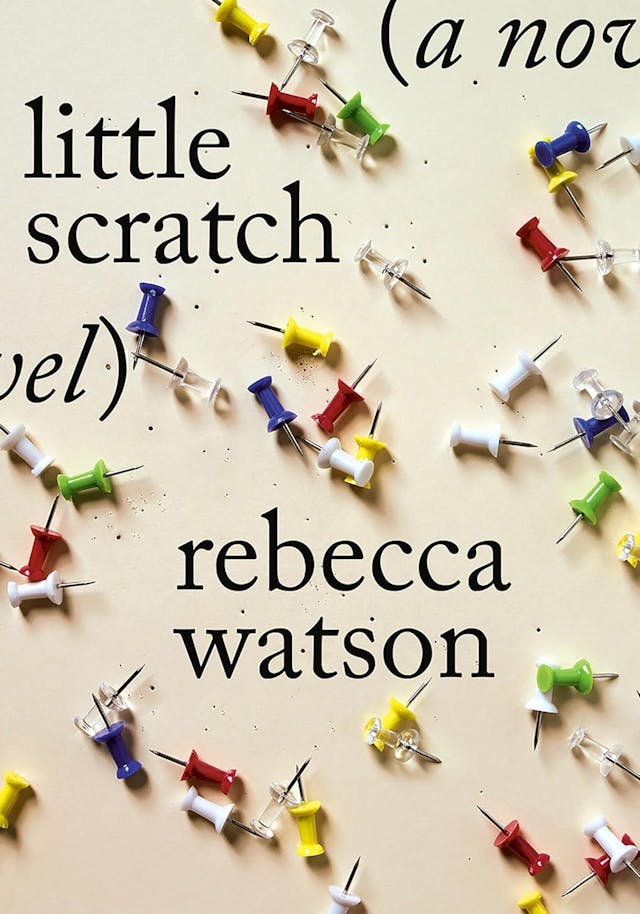Rob Walker | October 18, 2021
The Monday Media Diet with Rob Walker
On Rome, recording your sleep, and Christine McVie
Recommended Products

A book by Rob Walker, a longtime journalist and columnist, known for his astute observations of consumer culture.

A recently written book by Rob Walker, stemming from his newsletter and focusing on the concept and practice of noticing.

A book series by Tove Ditlevsen, praised towards the end of reading by the author of the post.

A novel by Rebecca Watson, recently finished by the author of the post but yet to be succeeded by a new reading choice.
We’re launching subscriptions for WITI. If you’ve been a loyal reader, we’d love for you to sign up. Thanks for your readership over these 2.5 years of daily editions and we will continue to build this into a great platform for intellectual omnivores. -Colin and Noah
We were longtime fans of Rob Walker’s Consumed column in the NYT, as well as his book Buying In. He’s an astute observer of consumer culture, and just wrote the book, The Art of Noticing. We’re pleased to have him on the page today. -Colin (CJN)
Tell us about yourself.
I’m a longtime journalist and columnist. These days the main focus is my newsletter The Art of Noticing, a spinoff from my most recent book. I also contribute to various publications, on work, branding, creativity, etc. I used to write The Workologist for NYT Sunday Business, and before that Consumed for NYT Magazine. There have been some other books and projects along the way. I live in New Orleans.
Describe your media diet.
I start every day with the NYT, then the WSJ, both via iPad apps. I follow many sources (from news sites to personal blogs) through Feedly, the RSS reader. I look at my local news (NOLA.com) and subscribe to the print edition of my local paper. I read dozens of newsletters, and listen to too many podcasts. I still get a few print magazines, most notably The New Yorker and The New York Review. I spend approximately 1 minute a day on Twitter. (I assume being terrible at Twitter has hurt my career!) For some reason, I still like looking at Tumblr.
What’s the last great book you read?
The Copenhagen Trilogy by Tove Ditlevsen. I didn’t know it was great until toward the end. But it was. I should mention that I read this specifically because it was recommended on The Jeselnik & Rosenthal Vanity Project podcast, to which I am devoted (but which is definitely not for everyone).
What are you reading now?
Little Scratch by Rebecca Watson. Actually, I just finished, but haven’t picked what’s next quite yet.
What’s your reading strategy when you pick up a print copy of your favorite publication?
I look at the TOC, then I page all the way through the entire publication, taking note of what seems interesting, and if there is a true must-read I stick my finger on the first page of it and keep flipping, and when I get to the end of the flip-through I go back and read the must-read immediately if at all possible.
Who should everyone be reading that they’re not?
I’m worried that there's no way to answer this question without being kind of backhanded. But I’ll try. Lots of really smart in-the-know people are definitely reading HILOBROW, edited by my frequent collaborator Joshua Glenn. But not enough people are reading it. So everyone who isn’t should start.
What is the best non-famous app you love on your phone?
Sleep Recorder. I frequently talk in my sleep, and this app records that for me. It’s interesting! (Probably to me alone.)
Plane or train?
Train. I love a train.
What is one place everyone should visit?
Well, New Orleans of course. I would also say Rome, though I’ve only been once, it made quite an impression.
Tell us the story of a rabbit hole you fell deep into.
I’m lately spending a strange amount of time investigating Christine McVie. This is not really consistent with my listening habits; I have no special interest in or affection for Fleetwood Mac. In fact, I’m vaguely nervous about disclosing this because it’s so at odds with my usual listening habits. But somehow I was just thinking how she was kind of overshadowed by the band’s other songwriters (Nicks & Buckingham), so I just started poking around. I’m also interested, in a journalistic way, in why some things are popular. And I’m very interested in revisiting things I’ve previously dismissed. In this case, I truly hated the song “Don’t Stop” (for reasons I won’t get into because I’m thinking I might write something about this and in any case, it’s a long story). But upon revisiting, I kinda like “Don’t Stop.” Apparently, McVie really got interested in piano thanks to a Fats Domino songbook, and I now (believe I) hear that influence. I certainly wish I could hear Fats Domino perform “Don’t Stop,” I think that would sound terrific. Just more proof, perhaps, that I will always find a way to like something if I can discover, or invent, a New Orleans connection. (RW)
--
WITI x McKinsey:
An ongoing partnership where we highlight interesting McKinsey research, writing, and data.
A life in full. Indra Nooyi, former chairman and CEO of PepsiCo, is a trailblazer—she was the first woman of color and immigrant to run a Fortune 50 company. But how'd she manage a demanding career and a growing family, and what did she learn along the way? Find out in a can't-miss interview from McKinsey's Author Talks series.
--
Thanks for reading,
Noah (NRB) & Colin (CJN) & Rob (RW)
—
Why is this interesting? is a daily email from Noah Brier & Colin Nagy (and friends!) about interesting things. If you’ve enjoyed this edition, please consider forwarding it to a friend. If you’re reading it for the first time, consider subscribing.

